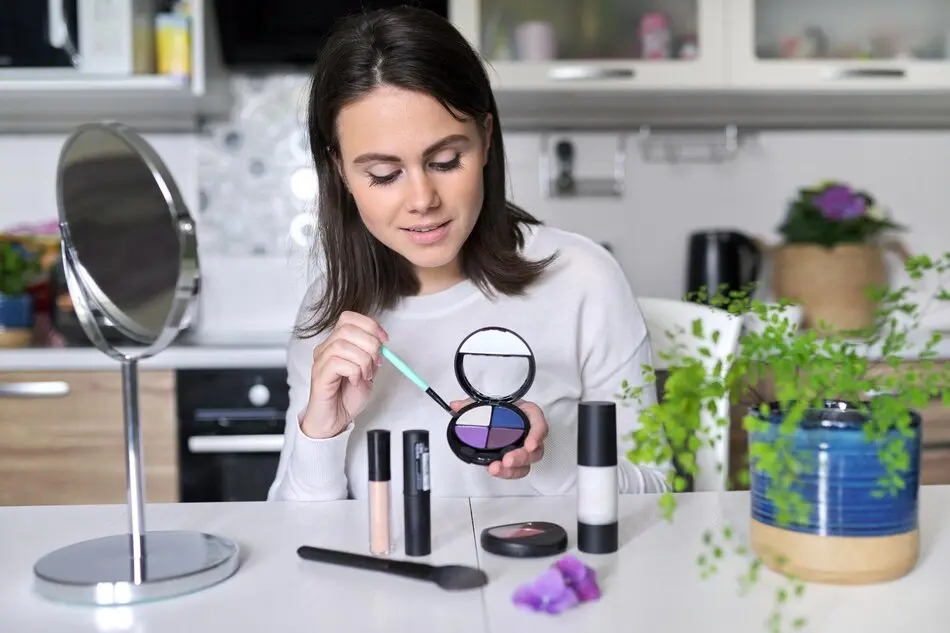In the competitive beauty and cosmetics industry businesses must stand out and draw their focus audience. Digital marketing must be inventive to thrive in this environment. Beauty and cosmetics firms may increase consumer engagement and revenue awareness using the newest trends and technology.
Startups can differentiate themselves and build a solid online presence by using AR and Virtual TryOn experiences collaborating with influencers harnessing data and personalization embracing TikTok and shortform video content and implementing social commerce strategies.
Five unique digital marketing strategies for beauty and cosmetics companies to enhance sales and stand out in the competitive industry are discussed in this article. To help entrepreneurs succeed in the digital era these techniques combine creativity, technology, and consumer focus.
1. Leveraging Ar And Virtual Tryon Experiences
In the competitive beauty and cosmetics industry where customers increasingly purchase online interactive and immersive experiences are crucial. AR and Virtual TryOn have transformed digital cosmetic product interactions. These new solutions help boost consumer engagement and revenue for industry startups.
Beauty firms may let clients visually put on cosmetic items experiment with hues and imagine how they would appear before buying by incorporating AR into their websites or mobile applications. This improves the purchasing experience and solves online customers need for help trying things.
AR try-on experiences may also be shared on social media creating user-generated content and brand awareness. Customers may use Virtual TryOn to test skincare items on their skin type and tone in addition to cosmetics. This individualized strategy boosts brand trust conversion rates and consumer pleasure.
2. Influencer Collaboration And User-generated Content
Collaborations with beauty influencers and content producers may boost a startups digital presence in the age of influencer marketing. Influencers are great brand promoters because beauty fans turn to them for product suggestions lessons and reviews.
Beauty entrepreneurs may expand their audience by working with honest credible influencers who share their beliefs. Influencers may share the efficacy and adaptability of the brands goods via sponsored content product placements and ambassador programs raising awareness and buzz.
Promoting user-generated content UGC helps boost brand awareness and the customer community. Startups may encourage consumers to post cosmetics, skincare regimens, and product reviews on social media using hashtags or brand tags. The bank of original material boosts brand loyalty and peer-to-peer referrals.
Learn More : 10 Creative Ideas For Online Events That Drive Digital Engagement
3. Harnessing The Power Of Data And Personalization
Marketers use data to understand customer behavior interests and trends in the digital era. Beauty and cosmetics firms may use data analytics to understand their consumer better and personalize their marketing. Startups may tailor marketing efforts to individual tastes and interests by evaluating purchase history browsing behaviors and demographic data.
It might be targeted email marketing individualized product suggestions or dynamic website content. Using real-time data to refine and optimize marketing activities using AI and machine learning algorithms helps improve customization.
AIpowered chatbots may provide tailored skincare suggestions based on customers skin issues and objectives making buying accessible and engaging. Beauty firms can increase consumer pleasure loyalty conversion rates and revenue by using data-driven insights and customization in the competitive digital market.
4. Embracing Tiktok And Shortform Video Content
In recent years Gen Z and Millennials have made TikTok a social media powerhouse. TikTok is great for beauty and cosmetics businesses to exhibit their goods and engage with younger audiences because of its short form video style and focus on creativity and authenticity.
TikToks algorithm-driven content discovery may help startups reach more people and increase engagement with unique and amusing videos. Shortform films such as cosmetic tips skincare regimens and product reviews let companies show off their goods and express their brand identity. Duet and stitch features on TikTok encourage user cooperation and viral marketing content.
Beauty firms may boost website traffic and revenue by capitalizing on TikTok trends and issues. Infeed commercials sponsored hashtag challenges and influencer collaborations help firms increase reach and engagement on TikTok. By integrating it into their digital marketing plan beauty and cosmetics entrepreneurs may profit from TikToks rising prominence in the beauty sector.
Learn More : 5 Best Retail Store Marketing Strategies For Success
5. Implementing Social Commerce Strategies
Social commerce has become essential to digital marketing as social media platforms become shopping destinations. Social commerce tactics that seamlessly incorporate product discovery and purchase into social media platforms may help beauty and cosmetics firms profit from this trend.
Instagram and Facebooks shoppable posts inapp checkout and Instagram Shopping tags let companies promote their items to their followers and simplify the buying process. Startups can make buying easy and encourage spontaneous buying by tagging items in posts and stories.
Paid social media advertising may boost sales and conversions alongside organic content. Beauty companies may maximize their advertising spend by targeting and retargeting consumers interested in comparable items or interacting with their brand.
Since consumers are more inclined to buy based on peer guidance, including user-generated content in social commerce initiatives, it may boost authenticity and trust. Startups may utilize social proof to convert by curating and promoting user-generated material on social media.
Social commerce and social media purchasing may help beauty businesses increase sales and brand loyalty in the digital age by giving consumers a smooth and engaging buying experience.
Conclusion
Beauty and cosmetics companies have much digital potential to develop and prosper. Startups can engage their audience drive sales and build a strong brand presence online by collaborating AR technology with influencers harnessing data-driven insights embracing social commerce tapping into microinfluencers and niche communities encouraging user-generated content and investing in sustainable initiatives. Beauty entrepreneurs may compete in the everchanging digital market by staying agile inventive and customer-centric.





